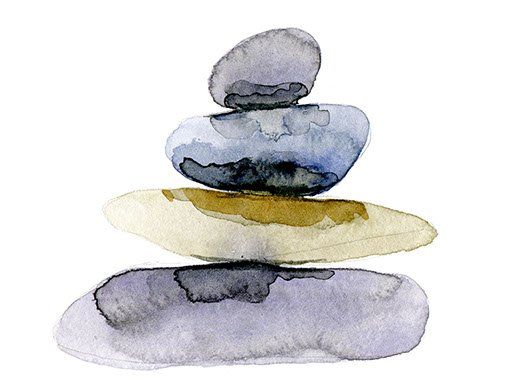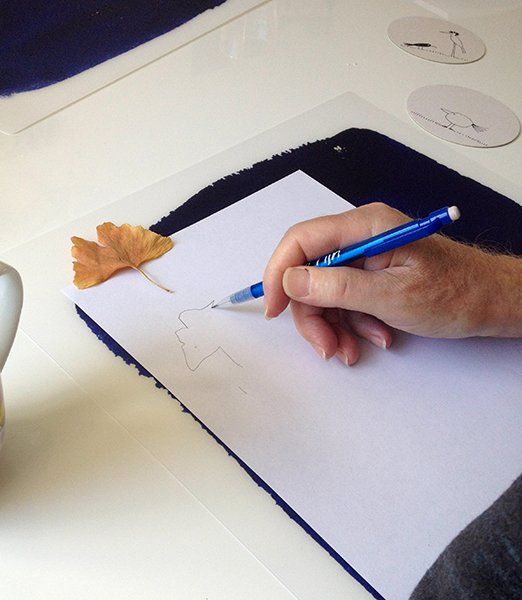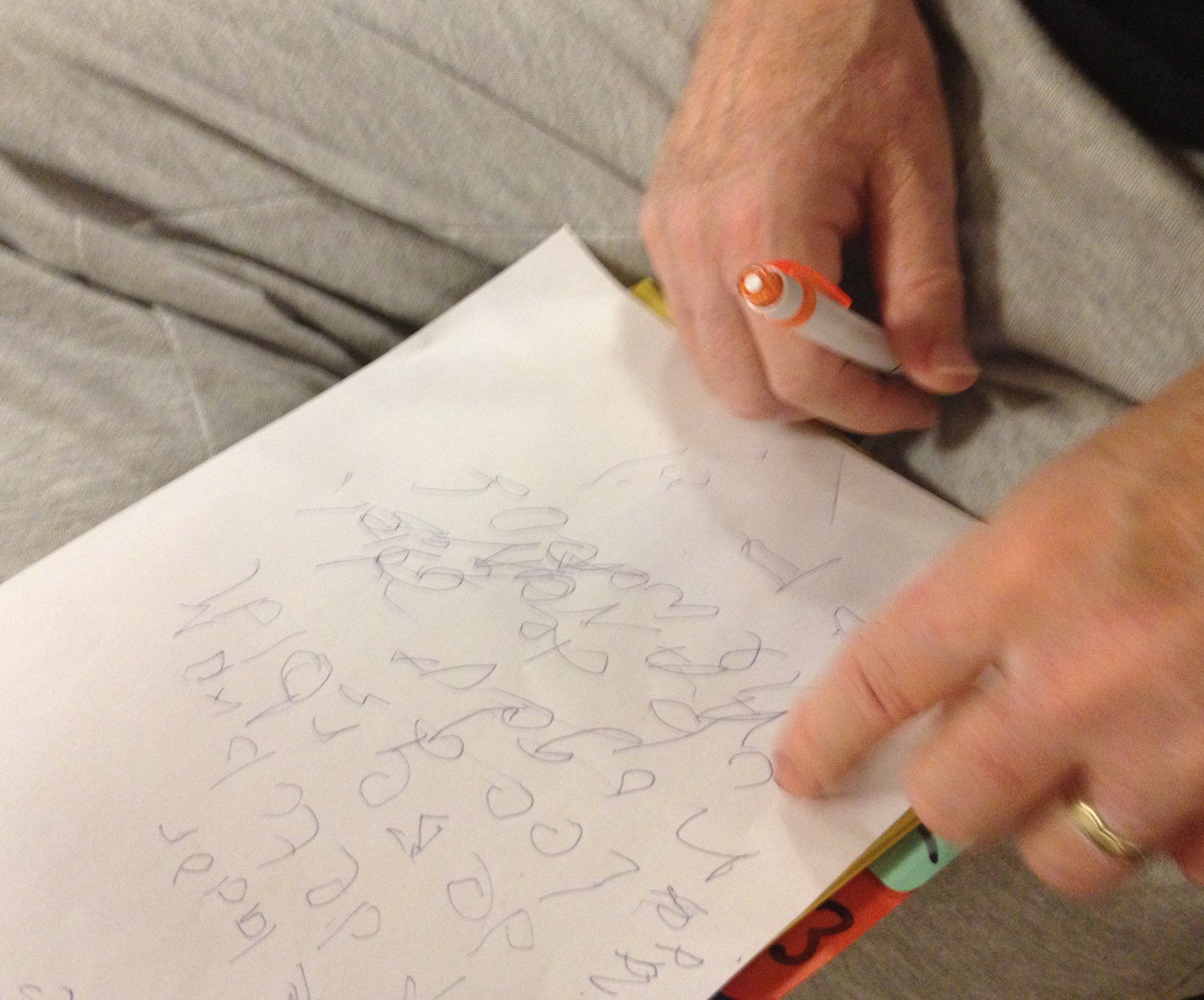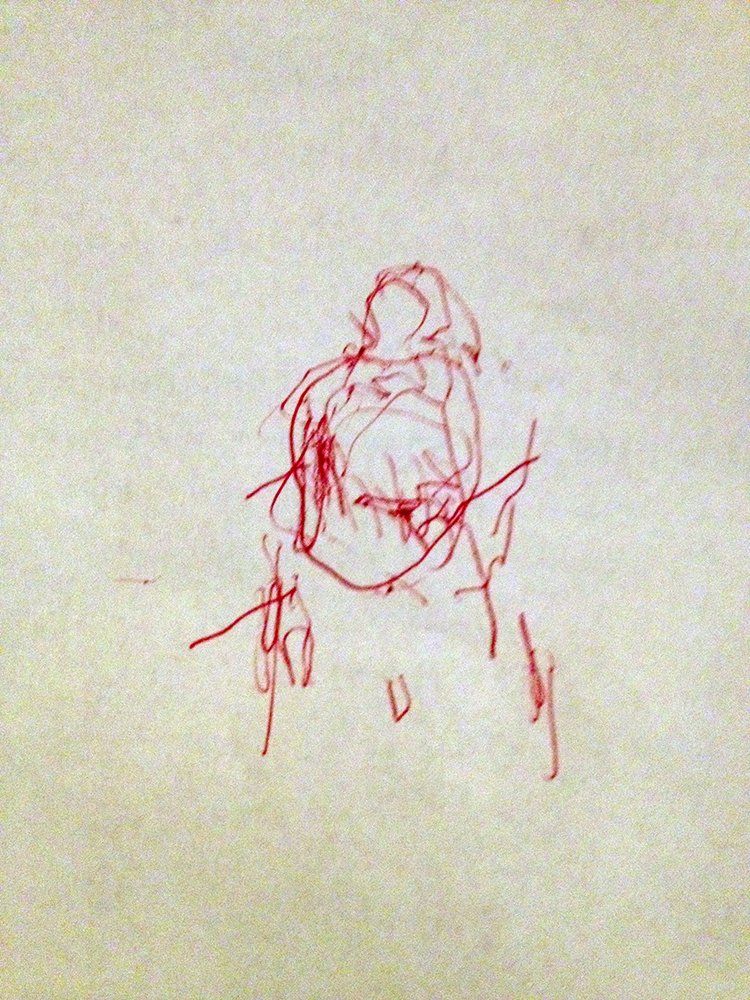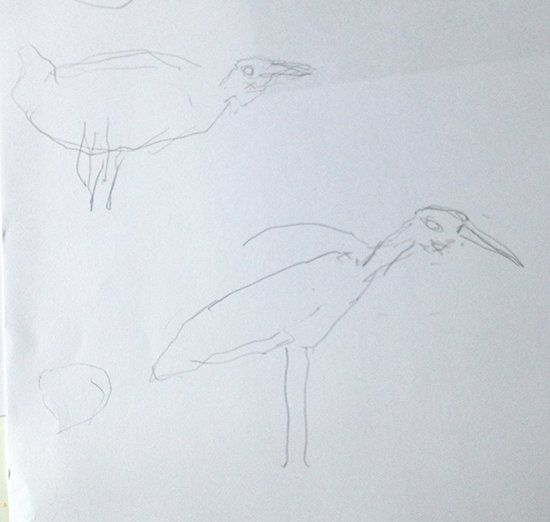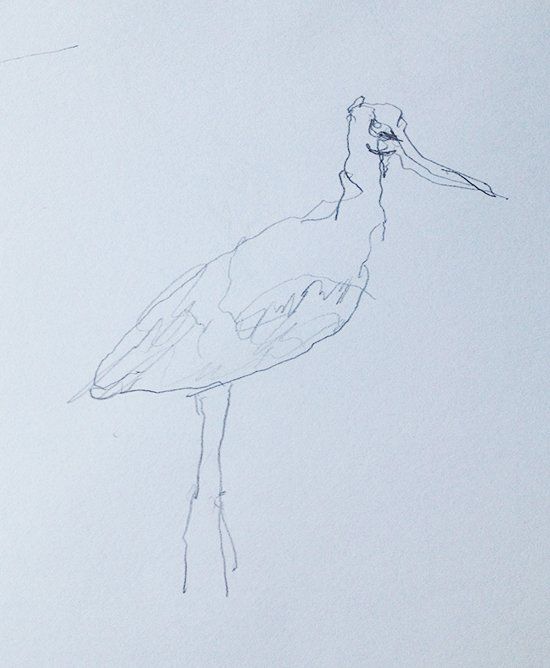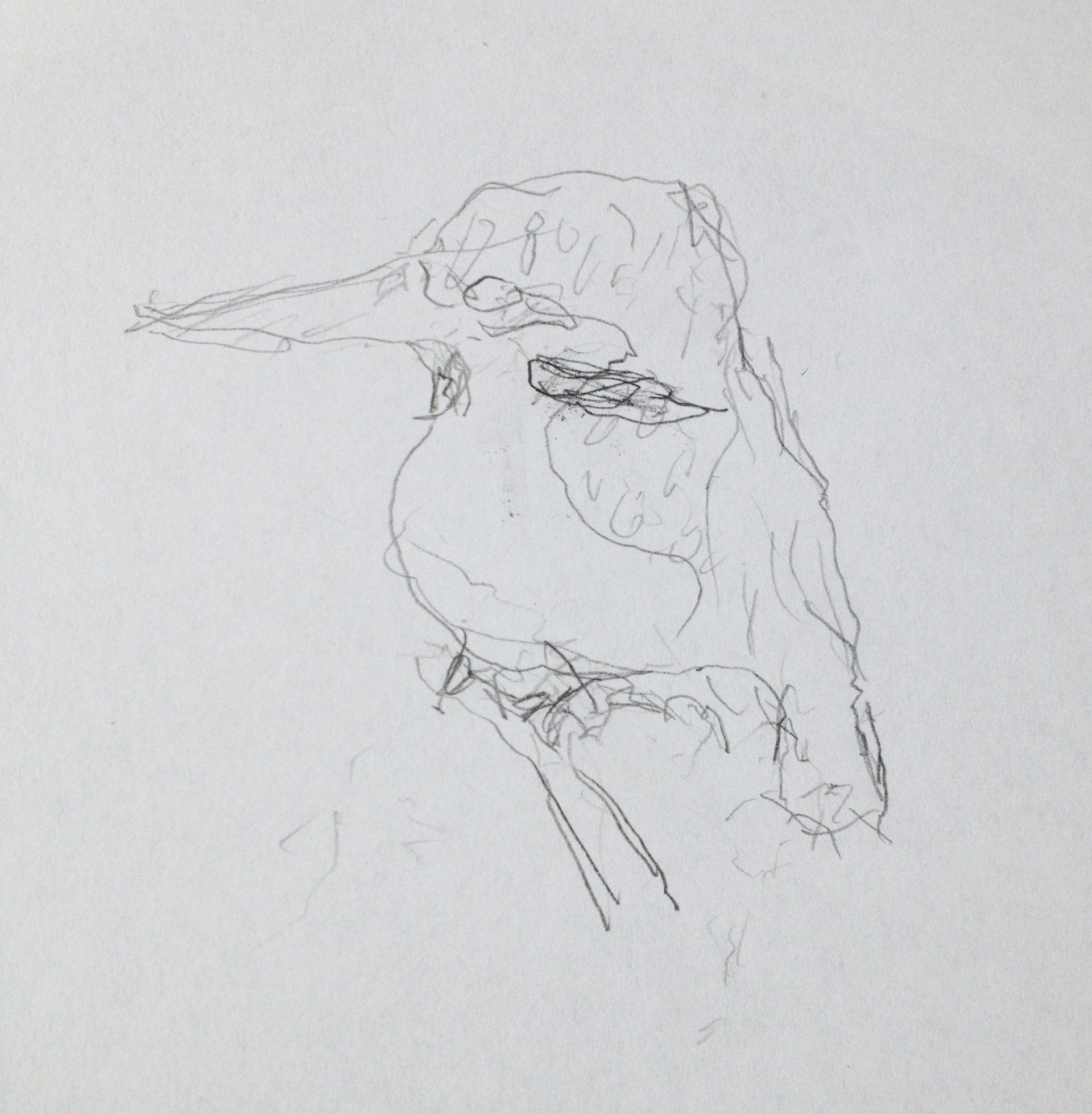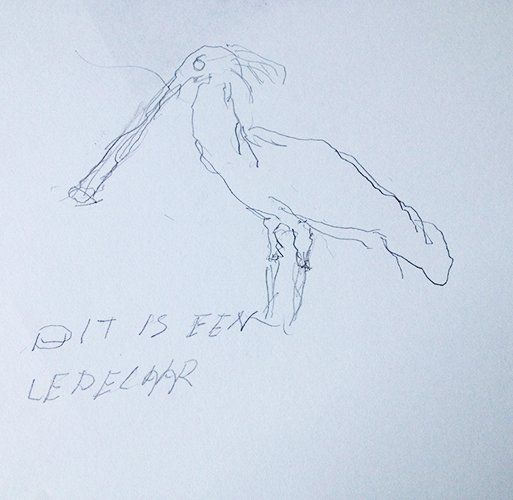Healing effects of Zen drawing
Healing effects of Zen drawing
During my study in Health Psychology at the university of Leiden in Holland, I wanted to find out if I could 'marry' psychology, creativity and art as a way to help people create better lives for themselves. So I started to gather information about several types of art therapy, took art classes and began to further develop my professional skills in painting, drawing and photography. Not long after I graduated I was given some books that seemed to be just what I was looking for all those years at university. First I discovered the work of Betty Edwards, who was the first person to connect drawing to the way our brain works and somewhat later a book by Frederick Franck made me feel as if everything finally fell into place. My study, my love for painting and drawing and my growing interest in Buddhism and meditation it all came together into this drawing technique I now call Zen drawing.
I started to draw with a different purpose: instead of only being focused on creating wonderful art, my focus shifted to creating a wonderful drawing experience. I wanted to become more aware, more relaxed and more open minded. Since Zen drawing helped me to find more balance and more joy in my work and in my life, I started to wonder if Zen drawing would have the same positive effect on others. So I took the bull by the horns and decided to start teaching others how to use this Zen drawing technique to improve their drawing skills and their peace of mind and I have been enjoying teaching ever since.
One day I was asked to teach Zen drawing in a Health care center where I was asked to work with people with a variety of psychological problems. It was there that I realized that this Zen drawing technique really was an interesting method to increase the feeling of psychological well being of people in healthcare. Please note that my observations and conclusions are based on my own personal experience with students and -although I am a trained psychologist- are not based on a scientific research.
Most important effects of Zen drawing
Zen drawing has proven to me that is not only a easy technique to improve your drawing skills, but is also an effective meditation technique. I am convinced it has the same beneficial effects as a well-know technique like Mindfulness and have no doubt that if you would combine these two techniques it would bring even better results. Here are some of the most important effects that I personally have experienced due to Zen drawing:
- A peaceful, silent mind (becoming Mindful)
- Increased concentration and focus
- Improved visual awareness
- A feeling of connection to the world around me
- Higher self esteem and trust in life
- More self awareness and self reflection
- More in tune with my intuition
- A deeper insight in the projections of my mind
- A clearer view with less projections of my mind
- Easier to let go and follow the flow
- Improvement of fine motor skills
- Improvement of visual memory
- Enjoying the beauty of nature
About Buddhism and Western psychology
Western psychology mainly focuses on repairing dysfunctional elements of our personality, emotions, thoughts and behavior. Our ego and mind are seen as the root-cause of the problem. Depending on the type of therapy, patients learn to become more aware of their problems, the causes of these problems and the possible solutions. In general you can say that Western psychology focuses on solving mental and/or emotional problems.
Buddhist psychology looks at these 'ego problems' slightly different. Although Buddhism acknowledges the existence of our ego and mind, it also states that we are more than just our personality and we can all reach a healthy mental state, where we feel connected to everything around us, relaxed, happy and aware. Reaching this blissful state is the main focus in Buddhism and all meditation techniques are designed to help us to reach this no-mind state.
For professionals
I personally believe that Zen drawing can be a helpful addition to a wide variety of psychological problems. Just a few examples:
- I have personally seen that Zen drawing can be a very helpful tool when recovering from brain damage after a cerebral infarction when my father suffered a stroke in 2016 (see 'my father's stroke' below)
- Professionals working with people who had suffered from a psychosis, told me that Zen drawing helped their patients to become more in tune with reality.
- Professional coaches working with people who were recovering from a severe burn-out, noticed people that started to use Zen drawing were able to keep their energy level more balanced
- Zen drawing has a strong relaxing effect, which can help people that are suffering from problems with anxiety and strong rumination
- Zen drawing teaches people to be trustful and patient and to focus on each step while drawing. Something that will benefit people with ADHD and ADD
- Professionals working with people who had suffered from a psychosis, notice that Zen drawing helps their patients to become more in tune with reality.
My father's stroke
Early 2016 my then 65 year old father got a series of brain attacks that affected his live tremendously. His left brain got damaged in 7 different areas and he had failure symptoms on his right side of the body, making him unable to walk or use his hand and right arm. Besides this, his memory failed, he could not read or write, and his sight was highly affected due to Hemianopsia. As a daughter and psychologist, it gave me a profound insight in the functioning of my father's brain: he could spell words, but was unable to read them. He could write letters in the air with his finger, but he could not recognize letters when he saw them on paper. He could describe animals, but he didn't recognize them on pictures. It was my father's worst nightmare since he loved to walk in nature and read a book. Basically, the world as he knew it fell apart and he had to rebuild his life all over again.
Luckily for me and my family, he received great care in a rehabilitation center and made great progress in a short period of time. He slowly learned how to walk and he began to recognize written words and animals again. Besides that he had to learn how to write all over again.
After a few weeks he started to get some control back over his right arm so I decided to see if Zen drawing might be a good exercise for him to stimulate his vision, memory, concentration span and fine motorskills. Now to be honest my father isn't the 'drawing kind', so when I asked him to draw a stork -one of his favorite birds- shortly after his stroke, this was the drawing he made...
Based on this drawing my expectations weren't very high when we started to practice several weeks later. I had to help him get a grip on his pencil and sometimes it just flew out of his hands like a slippery piece of soap. I started asking him to draw straight lines and symbols from memory. That actually went very well so I asked him to draw a stork again -see the picture below- one from memory (top of the paper) and one from a photo (bottom of the paper). As you can see, they were almost similar and much better than the drawing in red pen he made weeks earlier (picture above).
One of the exercises in Zen drawing is called 'blind contour drawing' so I decided to start practicing this with my father. When I asked him to draw the leaf a Ginko tree I noticed that it was much easier for him to draw the left side of the leaf than it was drawing the right side of that same leaf. It may have had something to do with the motor skills of his arm at that time, but when asked him to draw the same stork he drew earlier from the photo again but this time using the blind contour drawing technique, the result -as you can see in the image below- surprised us both!
My father got really enthusiastic, so I asked to draw his favorite bird: the king fisher (below left) and after this drawing went really really well. He also drew a spoonbill and wrote down the name of the bird in Dutch (below right) and this is when I noticed that his writing had also improved as a result of practicing with his drawing. In the end I had to make him stop drawing and take some rest. Zen drawing became one of the exercises that gave him a positive experience of success in his recovery.
Now, several years after this intense period I can happily say that my father has recovered quite well from his stroke. He is able to walk, read and write again and although he sometimes gets confused or tired and still has the visual impairment, I can say that he is doing better than we ever could have hoped for. If you are wondering if he is still drawing, the honest answer is.....No!
Since his recovery he prefers reading over drawing, but the only thing he now claims, is that my talent actually comes from him...
© Michelle Dujardin
Artwork & Illustrations
Telephone:(+31)622385144
info@michelledujardin.com
Artwork & Illustrations
Telephone:(+31)622385144
info@michelledujardin.com



